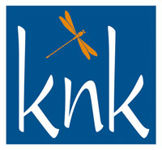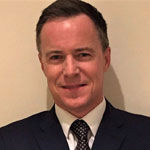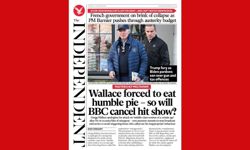
Sir John Curtice, distinguished psephologist and expert on public opinion polls and professor of politics at Strathclyde University, is not exactly a household name.
But at election times, he is a familiar face making sense of the voting trends and delivering authoritative exit poll verdicts. Sir John has called them right since 2005.
Unsurprisingly, he is the go-to back-up man for the main studio presenters.
During the Covid pandemic, Sir John also became a familiar figure broadcasting from the hallway of his Edwardian Glasgow home against a background of the Mackintosh-style stained glass in his front door.
At the moment, there is one fundamental question that the political academic is asked above all others. Is Labour going to win the next election?
The answer is both dramatic and banal at the same time.
“The truth is that nothing has happened for twelve months, literally. Nothing has happened,” emphasises Sir John.
Give or take the odd percentage point, and Sir John tries to persuade the media not to sensationalise small, meaningless poll movements, Labour has a solid lead of around 20 per cent over their Tory rivals.
“There were two political events which changed the political scene – Partygate and Liz Truss,” Sir John explains.
Parties in Downing Street during lockdown and the disastrous 49-day Truss premiership helped make up a lot of minds and the electorate don’t show any signs of forgetting or forgiving.
Sir John was speaking just before the latest upheaval in Westminster with the sacking of Home Secretary Suella Braverman and the return to government of former Prime Minister David Cameron, now Lord Cameron.
There is little evidence to suggest that reshuffles, however dramatic, do much to alter the destiny of governments and although it is early days, there are initial signs that the reshuffle may have further damaged the government’s electoral prospects. The first poll following the reshuffle showed a 30 per cent Labour lead.
Passion for politics
There is another softer, more personal question that Sir John is frequently asked. How did he become interested in politics and not just devote an academic life to analysing voter behaviour but also popping up on television, radio and in the national newspapers with precise explanations?
Of his broadcasting career he explains: “I became the person set up to do analysis on the fly in real time.”
Sir John’s first political memory was the death of Labour leader Hugh Gaitskell in 1963 and the subsequent leadership election won by Harold Wilson. He began reading the papers.
“I remember Quentin Hogg (Lord Hailsham) just standing in the middle of a square in Truro where I went to school, standing up talking, dealing with hecklers which politicians no longer know how to do,” Sir John remembers.
He studied philosophy, politics and economics at Oxford although his main love was politics.
“I majored in how voters behaved but I was also caught up in the drama of politics,” he explains.
His supervisor at Oxford was David Butler, the most famous television election specialist of his day who invented the concept of the Swingometer.
Butler advised the young Curtice, if he really wanted to understand voter behaviour, he had to become computer literate. He took the good advice.
His first BBC task was to bring along a programmable calculator to calculate the swing off the back of outside broadcasts results in case the BBC’s only mainframe computer broke down.
His feet were under the table and were soon under many other media tables from the Today programme to Newsnight and on to writing for many national publications from The Economist and The Times to The Sun and the Daily Mail.
Political reporting
Rather surprisingly, the rather austere Curtice is an admirer of the skills of tabloid journalists.
“They have to know exactly what they want to say and write in single clause sentences with no relative pronouns and absolutely no circumlocutions,” he explains.
“Journalists who write for the tabloids really do have to have a high command of the language because it’s a difficult thing to do. But it’s a brilliant training,” Sir John says.
He goes further and suggests that political journalism and the art of academic writing are more similar than both sides realise.
Journalists have news values that determine what they think matters or is of interest to their readers.
Curtice believes that this is the functional equivalent of theory, which academics use to determine what matters. Political academics want to understand, for example, what is the connection between the economy and the popularity of the government.
Journalists want an answer to a rather more pressing question – can the Tories win at the moment given the state of the economy.
Sir John does see some downsides to the concentration on human-interest news values – and the focus on the immediate rather than the longer term.
“A prime minister can take a country to war on grounds that turn out to be specious and they survive while put your hands in the till or have an inappropriate relationship and you are out on your ear,” the political guru argues.
He also believes there has been a decline in the number of numerate journalists who understand the numbers that are meat and drink to him.
There used to be journalists, he believes, “who knew their onions” such as David McKie of The Guardian, Peter Riddell of the Financial Times and The Times and David Lipsey of The Sunday Times.
The world of political journalism has moved on and he doesn’t think there is now anyone who has the same command, although there has also been the emergence of a new breed of data journalists such as John Burn-Murdoch for the Financial Times.
“We are now getting data journalists who really do understand their stuff. It’s a question of how much space they get,” says Sir John. He sees a future of more collaborative journalism that incorporates the work of data journalists with the work of more general reporters whose skills involve writing an elegant 800 words in an hour.
Voodoo polls
What does Sir John make of newspapers, often the Daily Express and the Daily Mail, who take up polls among their readers and turn the results into headlines?
“I call them voodoo polls,” says the polling specialist.
He doesn’t mind too much as long as the papers make it clear a poll is of their readers, “but it doesn’t mean anything other than that”.
The political parties don’t always relish what Sir John has to say, particularly following by-elections or local elections when he notes that they haven’t done quite so well as they would like to think.
One Labour briefing denounced “the cult of Curtice” after he raised reservations following last year’s by-election win in Wakefield and the earlier local elections.
“People here are furious about him yet again setting the narrative totally unchallenged. There should have been an internal inquiry at the Beeb after his nonsense during the locals and now he is at it again,” Labour complained.
Sir John laughs and concedes there had been “a couple of years when I gently pointed out perhaps the Labour Party is not doing quite as well as it claims.”
An honest broker
He regards one of his jobs on election night as being to take the spin off the narrative of the parties and contest it and be “an honest broker” but you need to present people with at least a section of the evidence.
As for the prospects of the coming general election, Sir John believes the evidence leads him to a clear conclusion.
“The odds are very high indeed that the next government will be a Labour administration but there is perhaps some room for doubt whether it will be a majority or a minority administration,” says Sir John.
“For a whole variety of reasons, it is probably going to be a majority administration,” adds Sir John but if not, it will still be a Labour administration because the Conservatives have so few friends in the House of Commons.
Northern Ireland’s Democratic Unionist Party might just do another deal with the Conservatives, despite being “double-crossed” in the past but neither the SNP nor the Lib Dems, he believes, would help to keep the Conservatives in power.
A minority Labour government supported by the Lib Dems and the SNP would be “a wee bit of a challenge” for Labour when one wants electoral reform and the other Scottish independence.
Events can of course intervene and there is “something still to play for.”
But Sir John remains adamant that the political weather has been set by four weeks’ politics in the past four years – Liz Truss in 2022 and the first two weeks of December 2021, when the Partygate allegations broke.
Whenever the next general election comes, you can be sure that Sir John who is 70 in December, will be prominent in the media explaining the trends and predicting the outcome via the exit polls. He will continue to do so as long as he and his wife Lisa, who has recently become a priest in the Scottish Episcopal Church, continue to enjoy good health.
Sir John has always argued that because universities are largely funded by taxation, academics have a responsibility to explain their ideas in public. And yet he has also said that he didn’t want to become a media celebrity.
He laughs again and concedes that he has indeed become a bit of a media celebrity, although he usually watches little more television than the Ten O’clock News and Newsnight, and that on an old cathode ray tube television in the corner.
You can be sure though, that if a major political story breaks, Sir John will be straight on to his trusty laptop with a piece for the papers.
When David – Lord – Cameron returned to office, Sir John wrote a crisp piece for The Independent with a surprising twist.
While other papers said Cameron’s return had been a bold move for Prime Minister Rishi Sunak, Sir John had a different take.
Because the Conservatives had lost ground on the economy and the health service, he was surprised to see Victoria Atkins appointed health secretary.
“Mr Sunak has opted to give the job of reducing the NHS waiting list to someone new to cabinet rank with no previous experience of the Department of Health. Now that does look like a bold move,” concluded Sir John Curtice.
This article was first published in InPublishing magazine. If you would like to be added to the free mailing list to receive the magazine, please register here.












